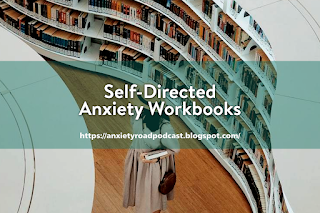Anxiety symptoms are pesky. We spend a lot of time trying to deal with them.
In addition to our daily task duties and responsibilities.
In this episode, I want to share a few tips that can restore a sense of stability and calm.
I don't want to turn anyone into a time robot.
There are some evil time technological oppressors that are rising in the workforce or the corporate marketplace.
Those buggers are trying to find ways to micro manage folks working from home. This episode is about using time to help you get things done.
What I am talking about is finding the shift necessary to make you existence calmer or more relaxed.
These are concepts, not instructions.
It is how to eat the elephant of work you have to do in smaller pieces of time. Work on a task for five minutes a day, five days a week is 25 minutes a week. This could be much better than trying to crunch it the last day that it is due.
It is about reframing time to match your needs.
Resources Mentioned:
Bearable, an app that helps you to track not only your symptoms, but food, activity, and sleep patterns. You get a visible display on how you are doing. Runs on Android and iOs
Unf*ck Your Habitat: You’re Better than Your Mess by Rachel Hoffman. Sure, buy the book but you can get a lot of good info at her website.
Jim Donovan's Rhythmic Stress Relief: Stopwatch Tap Technique Bone easy to do and will help you to bring your anxiety down a notch or two.
From Very Well Mind, Find More Time in a Busy Schedule for Less Stress. The word "no" is very important.
If you need support contact the National Suicide Prevention Lifeline at 1-800-273-8255, the Trevor Project at 1-866-488-7386 or text “START” to 741-741.
Links to other sites are provided for information purposes only and do not constitute endorsements.
Always seek the advice of a qualified health provider with questions you may have regarding a medical or mental health disorder.
This blog and podcast is intended for informational and educational purposes only. Nothing in this program is intended to be a substitute for professional psychological, psychiatric or medical advice, diagnosis, or treatment.
If you need support contact the National Suicide Prevention Lifeline at 1-800-273-8255, the Trevor Project at 1-866-488-7386 or text “START” to 741-741.
Disclaimer:
Links to other sites are provided for information purposes only and do not constitute endorsements.
Always seek the advice of a qualified health provider with questions you may have regarding a medical or mental health disorder.
This blog and podcast is intended for informational and educational purposes only. Nothing in this program is intended to be a substitute for professional psychological, psychiatric or medical advice, diagnosis, or treatment.










